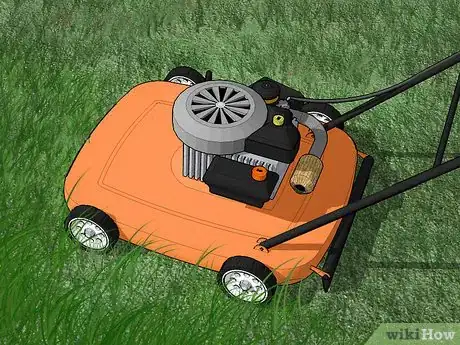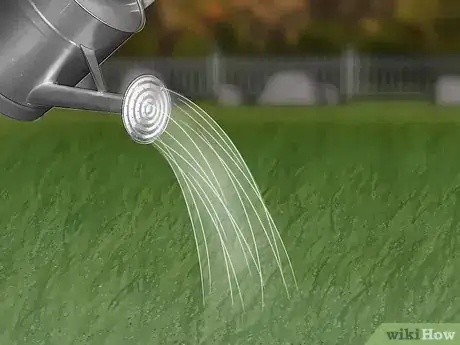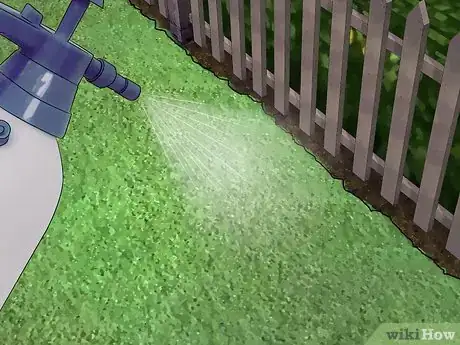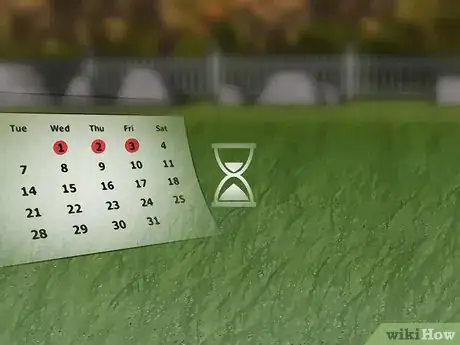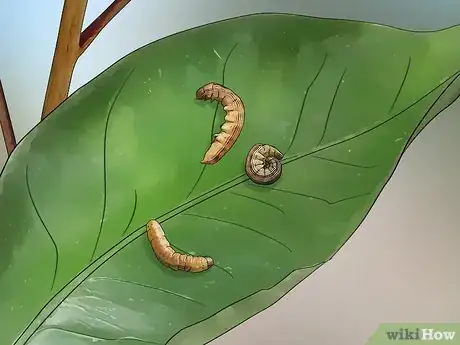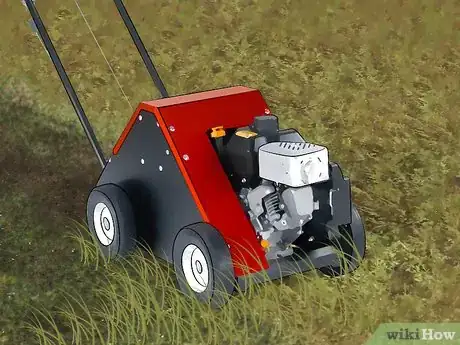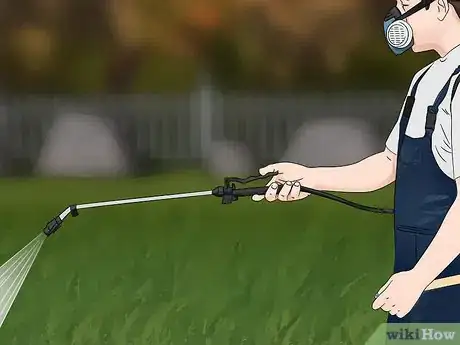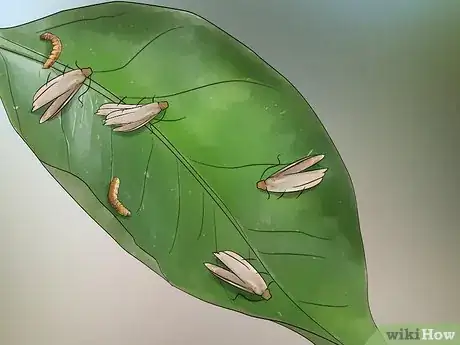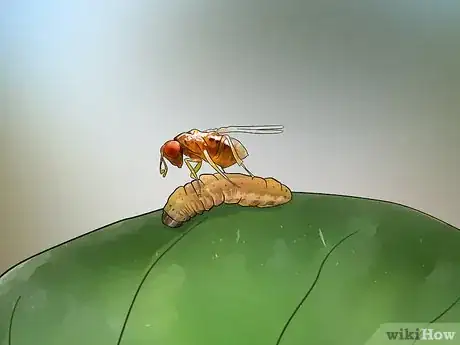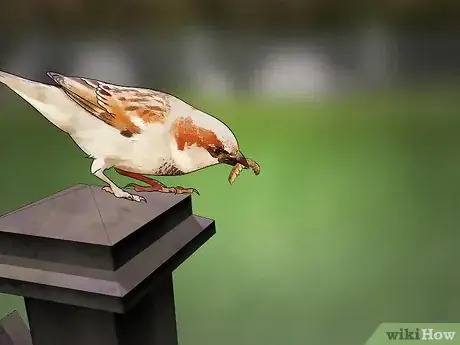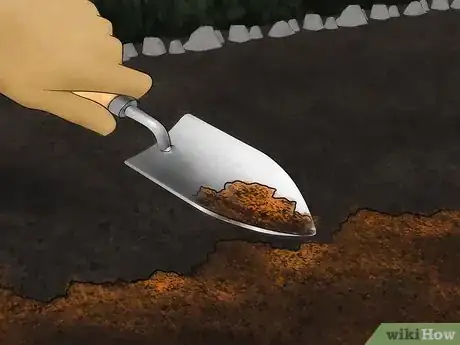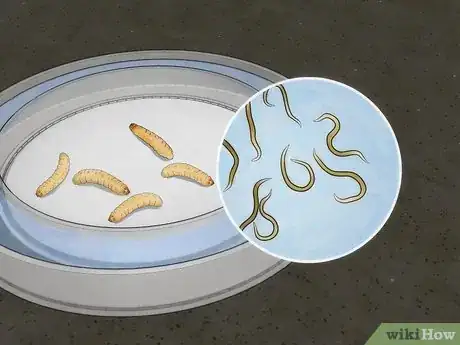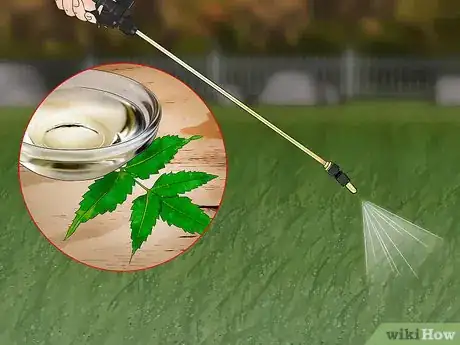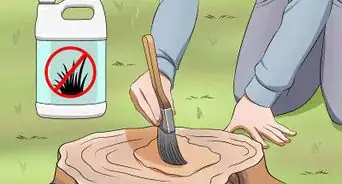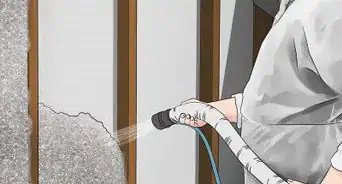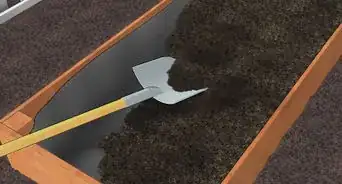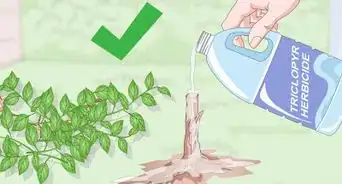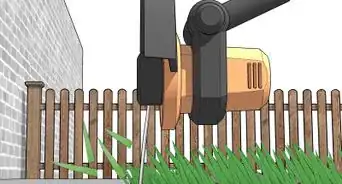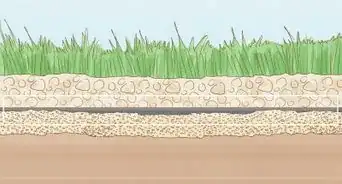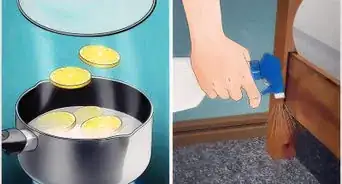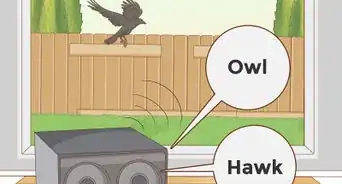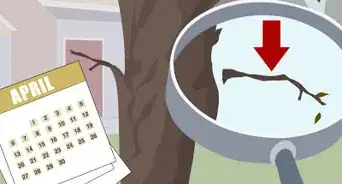This article was co-authored by Maggie Moran. Maggie Moran is a Professional Gardener in Pennsylvania.
wikiHow marks an article as reader-approved once it receives enough positive feedback. In this case, 85% of readers who voted found the article helpful, earning it our reader-approved status.
This article has been viewed 283,598 times.
Armyworms are green-striped caterpillar larvae of the adult armyworm moth. Armyworms got their name because they travel in small armies, eating everything in their paths. A common pest of grass, armyworms will also eat corn, beets, beans, clover, flax, millet, and other grains. There are specific steps you can take to remove armyworm infestations from your grass or fields. Additionally, there are some natural methods for keeping armyworms at bay.
Steps
Managing Armyworms in Grass
-
1Look for early signs. Because they feed at night, you may not see the caterpillars right away. Brown spots on your lawn are often the first sign that you have an armyworm problem. An increase of the number of birds in your yard may be an indication of armyworms. The earlier you treat the problem, the easier it is to control and less damage a lawn will sustain.[1]
-
2Mow the lawn. Trimming your grass short is perhaps the best way to discourage the presence of armyworms. Consider mowing your lawn a bit shorter than you normally would, and keep it groomed.[2]Advertisement
-
3Water the grass. Watering your grass, especially when done right after mowing, also causes caterpillars to move on to other lawns. Develop a regular watering routine, and remember to also water your grass right after mowing.[3]
-
4Use insecticide. Spraying the grass with a liquid insecticide is a very effective way to eradicate armyworms. Granular insecticides are generally less effective against armyworms. Choose a liquid insecticide, and follow all manufacturer's instructions (as these can vary from product to product).[4]
-
5Leave the lawn alone for three days. After you apply liquid insecticide to your lawn, it is important to avoid mowing and watering for at least three days. This gives the insecticide time to work.[5]
Controlling Armyworms in Fields
-
1Look for armyworms and/or droppings. Look under your plants for armyworms and/or signs of their frass (droppings). You may also find larvae hiding under plant debris. If you are growing barley or wheat, you may find worms inside of the heads.[6]
- Newly hatched armyworms may have no distinguishing marks, but older armyworms will be either brown with yellow stripes or green with light stripes.
- Armyworm droppings resemble black pepper.
-
2Mow your hay fields. If armyworms have infested your hay field, mowing the field is the first course of action. As the hay dries, the armyworms lose interest in it as a food source and move on.[7]
-
3Use insecticide. You can apply insecticides to the field using either ground or aerial equipment.[8] The following insecticides have been proven effective on controlling armyworms:
- Asana XL should be used only on corn crops and should not be applied within 21 days of harvest.
- Permethrin is also only for use on corn and should not be used within 30 days of harvest.
- Carbaryl (Sevin) may be applied either to corn or wheat. Do not do more than two applications and do not it apply within 21 days of harvest.
- Ethyl is useful for corn, sorghum and all small grains but can only be applied with an aerial application. Do not apply ethyl within 12 days of harvesting corn or sorghum, and within 15 days of harvesting small grains. After you apply the ethyl, post notices that the field is being treated, and stay out of it for three days.
- Lorsban can be applied to corn and sorghum. Do not allow livestock to graze in the field for at least 15 days after you apply lorsban. Do not feed meat or dairy animals grains treated with Lorsban until at least 35 days have passed.
- Lannate or Malathion can be used on all crops. Do not spray these insecticides within seven days of harvest and stay out of the field for two days after treatment.
- Methyl is used for aerial application on corn and small grains only. Do not apply it within 12 days of a corn harvest, or 15 days of a small grain harvest. Post notices in the fields and stay out of them for two days.
- Warrior can be used in corn, sorghum, or wheat fields. Do not apply it within 20 days of corn harvest or 30 days of sorghum or wheat harvest.[9]
Getting Rid of Armyworms Without Pesticides
-
1Watch for moths. In order for your natural approach to be effective, you must catch the infestation early. In early spring, begin monitoring for the presence of moths, and/or damage to your plants.[10]
- Armyworm moths are grey with distinctive white dot on their forewings.
- You may choose to set pheromone traps to catch moths. This will allow you to get a better look at their markings.
-
2Release trichogramma wasps. If you've caught the problem early in the season (late spring or early summer), you can release trichogramma wasps. These wasps will parasitize and ultimately kill armyworm eggs.[11]
- You can purchase these wasps from some garden supply stores, or online.
-
3Attract beneficial insects and birds. Unfortunately, the use of pesticides and insecticides can kill beneficial insects, along with armyworms. Instead, by encouraging the presence of these insects, as well as birds, you can naturally keep your armyworm population at bay. You can do this by avoiding the use of insecticides/pesticides, and by planting wildflowers.[12]
- Ladybugs and Lacewings are both beneficial insects.
-
4Overturn the soil in the evenings. Before nightfall each day, use a small gardening shovel to overturn the soil, bringing the larvae to the surface. This will allow birds to eat the larvae, which are usually out of sight.
-
5Release beneficial nematodes into the soil in the spring. Beneficial Nematodes are microscopic soil creatures that feed on many different pests, including armyworms. However, beneficial nematodes do not harm vertebrates, honeybees, plants, or earthworms.[13]
-
6Apply neem oil. If the introduction of other pests has not done enough to quell your armyworm problem, try using neem oil spray. Apply neem oil spray to your crops, making sure to cover stems and the undersides of leaves, as well. Avoid watering for at least 1-2 days after application.[14]
- Neem oil can be destructive to armyworms at various stages of their development.
- Additionally, neem oil is antifungal.
Expert Q&A
Did you know you can get expert answers for this article?
Unlock expert answers by supporting wikiHow
-
QuestionWhat product do I use for lawn treatment?
 Maggie MoranMaggie Moran is a Professional Gardener in Pennsylvania.
Maggie MoranMaggie Moran is a Professional Gardener in Pennsylvania.
Home & Garden Specialist
-
QuestionHow do I control army worms?
 Community AnswerSpray them with a mixture of soap, ammonia and water, and they will die within the hour.
Community AnswerSpray them with a mixture of soap, ammonia and water, and they will die within the hour. -
QuestionCan I use ashes as a natural means of controlling armyworms in my garden?
 Sharonne KandieCommunity AnswerAshes act as neutral solution to soil which contains high amount of acidity, so they may help.
Sharonne KandieCommunity AnswerAshes act as neutral solution to soil which contains high amount of acidity, so they may help.
Warnings
- If the armyworms are larger than 1-inch (2.54 cm) long, the damage to your crop may already be too extensive for control to be cost effective.⧼thumbs_response⧽
References
- ↑ http://www.aces.edu/pubs/docs/A/ANR-1019/ANR-1019.pdf
- ↑ http://www.aces.edu/pubs/docs/A/ANR-1019/ANR-1019.pdf
- ↑ http://www.aces.edu/pubs/docs/A/ANR-1019/ANR-1019.pdf
- ↑ http://www.aces.edu/pubs/docs/A/ANR-1019/ANR-1019.pdf
- ↑ https://gapaspalum.com/grass-management/insect-management/
- ↑ https://www.planetnatural.com/pest-problem-solver/garden-pests/armyworm-control/
- ↑ https://www.uaex.edu/publications/PDF/FSA-7083.pdf
- ↑ http://overton.tamu.edu/files/2011/04/ArmywormFactSheet2008.pdf
- ↑ https://www.ag.ndsu.edu/crops/winter-wheat-articles/the-armyworm-the-army-cutworm
- ↑ https://www.planetnatural.com/pest-problem-solver/garden-pests/armyworm-control/
- ↑ https://www.planetnatural.com/pest-problem-solver/garden-pests/armyworm-control/
- ↑ https://www.planetnatural.com/pest-problem-solver/garden-pests/armyworm-control/
- ↑ https://www.planetnatural.com/pest-problem-solver/garden-pests/armyworm-control/
- ↑ https://www.planetnatural.com/pest-problem-solver/garden-pests/armyworm-control/
About This Article
To control armyworms, start by mowing your lawn regularly to keep the grass short, and watering it right after mowing to drive out the armyworms. Then, turn the soil over each night to bring armyworm larvae to the surface so insects and birds can eat them. Additionally, try getting trichogramma wasps online or from your local garden supply store to kill the armyworm eggs. If natural remedies aren’t effective, buy a liquid insecticide and spray it on your lawn according to the manufacturer’s instructions. For more advice from our Horticultural reviewer, like how to control armyworms in your fields, read on!

